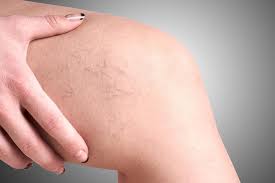Remedies to Overcome Symptoms of Varicose Veins: 10 Effective Solutions
Varicose veins, characterized by enlarged, swollen, and twisted veins, usually in the legs, are a common condition that many people experience. They result from weakened valves in the veins, which hinder proper blood flow back to the heart, causing blood to pool in the veins. Though varicose veins are often seen as a cosmetic concern, they can lead to symptoms like pain, swelling, itching, and heaviness in the legs. Fortunately, there are a number of remedies and treatments available to alleviate these symptoms and improve your overall vein health.
In this article, we will explore the best natural and medical remedies to help you overcome the symptoms of varicose veins.
1. Wear Compression Stockings
One of the most effective and widely recommended remedies for managing varicose vein symptoms is wearing compression stockings. These stockings apply consistent pressure to your legs, helping blood move more efficiently back toward the heart, reducing swelling and discomfort in the veins.
- How Compression Stockings Work: Compression stockings squeeze the legs, supporting the veins and muscles, thus improving circulation.
- Choosing the Right Compression Level: Consult with a healthcare provider to determine the appropriate level of compression. Stockings are available in different strengths, ranging from mild to strong compression.
Benefits:
- Reduces swelling
- Prevents blood pooling in the legs
- Alleviates pain and discomfort caused by varicose veins

2. Exercise Regularly
Regular physical activity can significantly reduce the symptoms of varicose veins. Exercise helps strengthen the leg muscles and improves blood circulation, which prevents blood from pooling in the veins.
- Low-Impact Exercises: Walking, swimming, cycling, and yoga are great options to boost circulation without putting excess strain on the veins. Regular walking, in particular, engages the calf muscles, helping to pump blood back to the heart.
- Leg Stretches: Simple stretches can also enhance blood flow and relieve the feeling of heaviness in the legs.
Benefits:
- Improves circulation
- Strengthens the leg muscles, supporting vein health
- Helps in maintaining a healthy weight, reducing pressure on the veins
3. Elevate Your Legs
Elevating your legs above heart level is a simple yet effective remedy for relieving the discomfort and swelling associated with varicose veins. This position helps gravity move blood from your legs back to your heart, improving circulation and reducing pressure in the veins.
- How to Elevate: Whenever possible, raise your legs on a cushion or pillow while sitting or lying down. Aim to elevate your legs for 15 to 20 minutes, several times a day.
- Elevating While Sleeping: You can elevate your legs slightly while sleeping by placing a pillow under your feet.
Benefits:
- Reduces swelling
- Relieves leg discomfort and heaviness
- Promotes better blood circulation in the legs
4. Maintain a Healthy Weight
Excess weight places additional pressure on the veins in your legs, which can worsen varicose vein symptoms. Maintaining a healthy weight through a balanced diet and regular exercise can alleviate the strain on your veins and improve blood flow.
- Healthy Eating: A diet rich in fruits, vegetables, lean proteins, and whole grains supports overall vein health. Include foods high in fiber to prevent constipation, which can also increase pressure on the veins.
- Avoiding Processed Foods: Limit the intake of processed and sugary foods, which can contribute to weight gain and inflammation.
Benefits:
- Reduces pressure on the veins
- Improves blood circulation
- Helps prevent further development of varicose veins

5. Stay Hydrated
Proper hydration is essential for maintaining healthy blood circulation. When you’re dehydrated, your blood can become thicker and more viscous, making it harder for your veins to function properly.
- Drink Plenty of Water: Aim to drink at least 8 glasses of water per day. Hydration helps keep the blood thin and promotes better circulation.
- Avoid Dehydrating Beverages: Cut back on caffeinated and alcoholic drinks, as they can dehydrate the body and worsen varicose vein symptoms.
Benefits:
- Supports better blood circulation
- Reduces the risk of swelling and cramping
- Improves vein elasticity and overall skin health
6. Eat a Diet Rich in Antioxidants and Flavonoids
Certain foods contain antioxidants and flavonoids that strengthen the veins and improve blood flow. These compounds reduce inflammation and prevent the worsening of varicose veins.
- Flavonoid-Rich Foods: Citrus fruits, berries, apples, and onions are excellent sources of flavonoids. These foods help to reduce blood pressure, improve blood vessel function, and prevent blood from pooling in the veins.
- Antioxidant-Rich Foods: Dark leafy greens, tomatoes, and nuts are rich in antioxidants, which help protect the veins from oxidative damage and inflammation.
Benefits:
- Reduces inflammation in the veins
- Improves overall vein strength
- Supports better blood circulation
7. Use Topical Remedies
Topical treatments, such as creams and gels, can provide temporary relief from the symptoms of varicose veins. These remedies often contain natural ingredients like horse chestnut extract or witch hazel, which have anti-inflammatory and vein-strengthening properties.
- Horse Chestnut Extract: Known for its ability to reduce inflammation and improve vein health, horse chestnut is a popular natural remedy for varicose veins.
- Witch Hazel: Witch hazel helps reduce swelling and tighten the skin, providing relief from pain and irritation caused by varicose veins.
Benefits:
- Reduces pain and swelling
- Soothes irritated skin around varicose veins
- Provides short-term symptom relief
8. Avoid Prolonged Standing or Sitting
Standing or sitting for long periods can exacerbate varicose vein symptoms by reducing circulation and increasing pressure on the veins. If your lifestyle or job requires you to be in one position for extended periods, make an effort to change positions regularly.
- Standing: If you have to stand for long periods, try shifting your weight from one leg to the other and take short breaks to walk around.
- Sitting: If your job involves sitting for long hours, take breaks every 30 minutes to stand up, stretch, and walk around.
Benefits:
- Prevents blood from pooling in the veins
- Reduces leg discomfort and swelling
- Improves overall circulation in the lower body

9. Massage Therapy
Massage can be an effective way to reduce the symptoms of varicose veins by improving blood flow and reducing swelling. However, it’s important to avoid direct pressure on the varicose veins themselves, as this could cause further damage.
- Gentle Leg Massages: Use upward strokes toward the heart to promote circulation and reduce fluid buildup in the legs.
- Use Essential Oils: Essential oils like lavender and cypress can be used in combination with massage to enhance circulation and relieve tension.
Benefits:
- Improves blood circulation
- Reduces swelling and discomfort
- Relaxes the muscles and relieves tension in the legs
10. Seek Medical Treatments
For severe cases of varicose veins or if natural remedies don’t provide sufficient relief, medical interventions may be necessary. Some common minimally invasive treatments include:
- Sclerotherapy: This procedure involves injecting a solution into the varicose veins, causing them to collapse and eventually fade.
- Endovenous Laser Therapy (EVLT): This laser treatment uses heat to close off affected veins, allowing blood to flow through healthier veins.
- Vein Stripping: In extreme cases, surgical removal of varicose veins may be required.
Benefits:
- Long-term relief from varicose vein symptoms
- Improves the appearance of the legs
- Reduces the risk of complications, such as ulcers or bleeding
Conclusion
While varicose veins can be uncomfortable and unsightly, there are many remedies available to alleviate the symptoms and improve your quality of life. By incorporating lifestyle changes, such as wearing compression stockings, exercising regularly, elevating your legs, and maintaining a healthy diet, you can reduce the discomfort caused by varicose veins. If natural remedies are not enough, seek medical advice to explore further treatment options. Early intervention can prevent the condition from worsening and provide relief from painful symptoms.
A perfect Solution Of Varicose Veins Click Here



